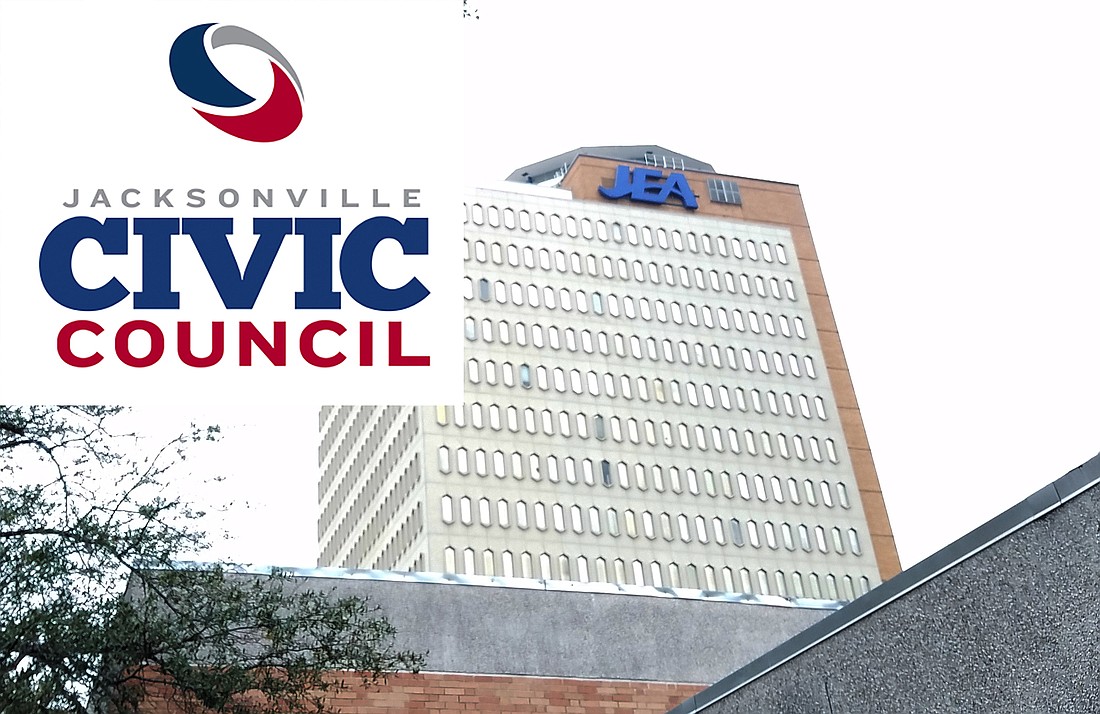
The Jacksonville Civic Council expanded its call for investigations into JEA to include cooperation between City Council and the U.S. Attorney’s Office.
In a statement emailed Jan. 7, the group of about 75 Northeast Florida CEOs said it wants City Council to work with its independent legal counsel in cooperation with U.S. Attorney for the Middle District of Florida Maria Chapa Lopez and 4th Judicial Circuit Chief Judge Mark H. Mahon to publicly investigate JEA officials’ strategic planning process and efforts to sell the city-owned utility.
The statement was sent by Civic Council CEO Jeanne Miller to Mayor Lenny Curry; JEA Board Chair April Green; JEA Interim CEO Melissa Dykes; 4th Circuit State Attorney Melissa Nelson; city Inspector General Lisa Green; Mahon; Chapa Lopez; and the Duval County Legislative Delegation.
“It is imperative that accountability be established and public trust and confidence in the integrity of our governance be restored,” the Civic Council wrote, “and only a comprehensive, transparent and timely investigation can achieve that goal.”
In December, the Civic Council requested that Nelson convene a grand jury investigation into the potential sale of JEA and the city officials, employees and lobbyists involved.
The Dec. 17 letter to Nelson; City Council President Scott Wilson and Council members; April Green; Dykes; and Lisa Green requested immediate action to investigate the activities and performance of fired JEA CEO Aaron Zahn.
Nelson’s office said Dec. 18 it is “looking into matters involving JEA,” and the state attorney told City Council member Matt Carlucci on Jan. 3 that her findings would be made public.
The Civic Council’s latest call repeats its concerns about Zahn and the abandoned Long-Term Performance Unit Plan that could have cost JEA ratepayers nearly $600 million were the utility to be sold.
The Civic Council urged Curry to work with City Council to make City Charter changes, including the removal of the confidential invitation to negotiate process from city procurement rules. That was the method the JEA used to privately work with nine companies that bid on JEA.
The CEOs with the Civic Council said the city should revise how JEA board members are appointed to require “highly qualified, non-partisan” nominees that have relevant professional expertise to serve on a public utility board.
This would be similar to appointees on the Downtown Investment Authority and Downtown Development Review Board, which include leaders in fields related to experience such as real estate and finance professionals along with Downtown business owners.
The Civic Council email attached draft legislation by City Council member Garrett Dennis that calls for a Nov. 3 voter referendum to change the Charter to give Council the authority to appoint three members to the JEA board, rather than all seven being appointed by the mayor.
Dennis stated his intent at a Jan. 6 noticed meeting at City Hall to reintroduce that bill in April.
Miller said in a follow-up email the Civic Council was not endorsing Dennis’ bill.
“A balanced and well-qualified board is necessary to JEA’s future success and will help to restore the confidence of the public,” the Civic Council wrote.
Florida House Bill 653
The Civic Council also is pushing for Curry, the City Council and the Duval Legislative Delegation to “strongly and publicly oppose” Florida House Bill 653 which would prohibit municipally owned utilities in the state, including JEA, from contributing to their owner’s general fund.
JEA’s contribution to the city’s general fund in fiscal year 2019-20 is budgeted at $118.8 million.
Of the 18 members of the Florida Municipal Power Agency, Orlando and Havana, near Tallahassee, would see the biggest impact to their general fund revenue if the bill passes, according to data provided by the Civic Council.
Orlando would see an annual loss of $87.17 million to its general fund, or 19.7% of its revenue.
Havana, which has a much smaller general operating fund, would lose $774,000 annually, but that is 29.7% of the city’s overall general fund revenue, according to the Civic Council.
Jacksonville City Council unanimously approved Resolution 2019-0864-A in December opposing the bill, introduced by District 119 Rep. Juan Fernandez-Barquin, R-Miami.